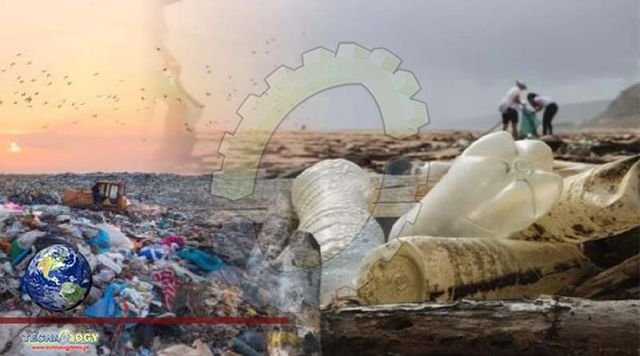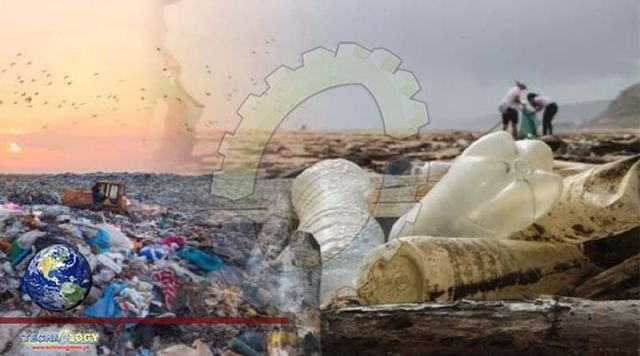The most renewable packaged water in the Boxed water aisle – is calling for industries and individuals to flex their purchase power for the sake of the planet based on alarming new data sources that reveal increasing single-use plastic consumption and decreasing recycling rates.

According to the just released Post-consumer Plastic Recycling Data Report, 4.8 billion pounds of post-consumer plastics were recycled in 2020, which is 5.7% lower than in 2019 – representing a decline of 290 million pounds of plastic, which ended up in landfills.
In particular, plastic bottles – although increasing in demand – are decreasing in recycling rates. The combined bottle recycling rate, which includes PET, HDPE, PP and other polymers, was 27.2% in 2020, down from 28.7% in 2019. The decline is related to the fact that other countries, like China and Turkey, have stopped taking U.S. waste exports.
“This isn’t just a wake-up call. Obviously, we’ve been hitting the snooze button too long on our plastic addiction,”explained Boxed Water™ CRO, Robert Koenen. “This data demands ‘code red’ attention and response – now. We entered this category to help curb the plastic numbers and eventually be put out of business by refill infrastructure and adoption. While one would hope oil and plastic corporations would take responsibility for their contribution, we have power we can flex at the individual level in our purchase decisions.”
According to Science Advances, Americans’ per capita consumption of single use plastic is the highest in the world with an average of 130 kilograms per person per year. Yet, according to the National Renewable Energy Laboratory, only 5% of plastic made in the U.S. was recycled in 2019.
In tandem with the daunting recycling data reports came a study that showed microplastics in human blood and lung tissue for the first time ever- along with an open investigation on the oil industry’s deception on plastic recycling rates.
“Many of us feel a sense of helplessness with climate change predictions, but there are plenty of changes we can make in daily life,” noted Koenen. “Stop consuming plastic water bottles. Stop using plastic bags. Buy from the bulk bins. Look for non-plastic alternatives to shampoo, soap, detergent, cleaning products – there are some great options out there. Support businesses that are pledging to reduce plastic.” noted Koenen. “We also need to ask ourselves questions like, ‘are the artisanal minerals from that Polynesian spring worth the plastic, production and transportation impacts to have it shipped halfway across the world?’ Probably not.”
Boxed Water™ which started in 2009, was the first to offer an alternative to single-use plastic water bottles, which are consumed at the rate of 50 billion per year in the U.S.Today, the brand continues to lead the water category with the most renewable packaging compared to plastic and aluminum as verified by an ISO certified Life Cycle Analysis conducted by Anthesis. Boxed Water cartons are 92% plant based (including the cap) all sourced from sustainably harvested pines and tree pulp waste. Cartons are filled with (8-step) purified water close to the source; out of two purification centers near Grand Rapids, Michigan and Salt Lake City, Utah.
Though Boxed Water is 100% recyclable, they want to move the “merit-focus” away from “recyclable” – due to the abysmal and declining rates. “The math is simple: the less plastic and aluminum the better,” added Koenen.
Boxed Water focuses distribution through channels where packaged water is unavoidable – airline, entertainment, hospitality, travel and visitor attractions. Proof of concept: their recently announced partnership with Alaska Airlines will remove 1.8 million pounds of plastic from landfills per year.Although Boxed Water™ has enjoyed accolades in the green living sphere, not everyone is fawning. When Alaska Airlines announced their plastic-bottle free water service, plastic lobbyists came out in force to stifle the news.
“We know we are doing something right when big plastic is after us,” suggested Koenen. “Still, the purpose of these tactics is to create consumer confusion, even when the fate of the planet is at stake and our plastic addiction is spiraling. You simply can’t contest the value of removing 1.8 million pounds of plastic in our landfills. It’s common sense.”
Source: this news is originally published by prnewswire
